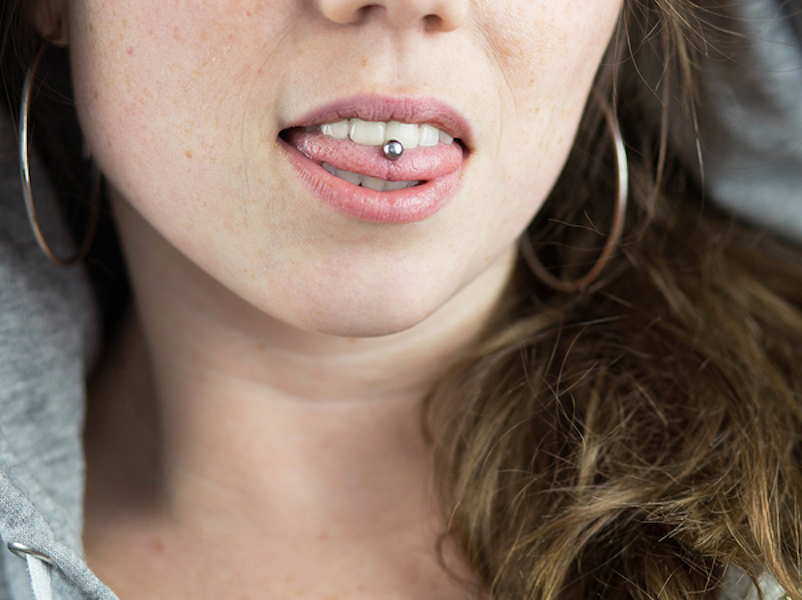They Look Cool but Tongue Piercings can be Dangerous to your Teeth
Let’s get right to it; while tongue, cheek, and lip piercings are “so in” right now, here’s five reasons to keep piercings where they belong—in your ears:
- Excessive drooling—YIKES!
- Chipped teeth
- Infection (some even in places you wouldn’t think can get infected)
- Hypersensitivity to metal
- Nerve damage
Drooling
Lip and tongue piercings may make you look cool and edgy. They may express your personality and creativity. But they can cause frequent drooling. That may not be the look you’re going for.
Broken Teeth
Another critical reason to keep piercings away from your mouth, lips, and tongue, is because having any metal in your mouth can chip your teeth. This can happen while eating, drinking, or sleeping. Or even while playing with said piercing.
Do you already have a tooth that’s weakened? Take care of these cracks before the whole tooth is in danger.
Small cracks in a tooth can be filled, or crowned. But often patients with piercings come in with more serious dilemmas. These may necessitate a root canal or tooth extraction.
Infection
Beware of infection. When it comes to oral piercings, you have to really watch the pierced area. Your mouth is a bacterial zoo, so to speak. Upon piercing anything in your mouth, the bacteria can enter your bloodstream. Neglecting proper brushing habits can lead to infection. As well as touching the piercing with dirty hands.
Hypersensitivity or Allergic Reaction to Metal
Many people love body jewelry. But too much of a good thing (like metal) can be bad. Having metal piercings can lead to hypersensitivity to any metal in your mouth, such as silverware. This is problematic for most people. (Stock up on plastic utensils!)
There is also the risk of an allergic reaction at the piercing site. If you know of a sensitivity to certain metals, you can get your piercing in a metal you aren’t allergic to. But you are still at risk of the other risks discussed here.
Nerve Damage
Finally, there’s the risk of permanent nerve damage. If the previous dangers don’t convince you, this one should. Experiencing a numb tongue is usually temporary. But in extreme cases, like if you can’t stop playing with the piercing, it can become permanent.
Contact Hereford Dental Health – Craig Longenecker DDS:
(410) 357-0099
Location (Tap to open in Google Maps):
16928 York Rd
Monkton, Maryland
ArticleID 8156
